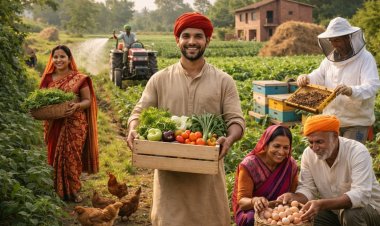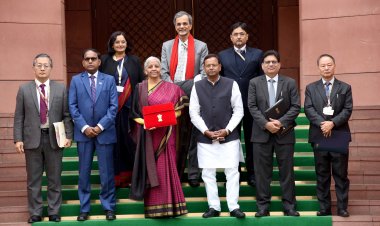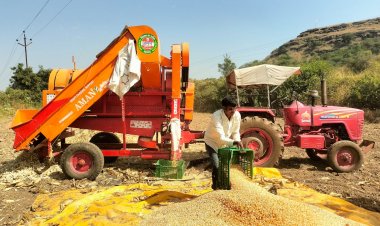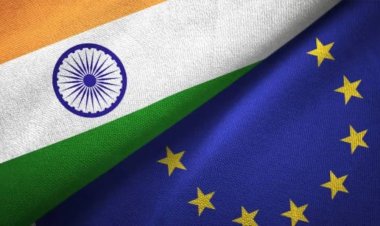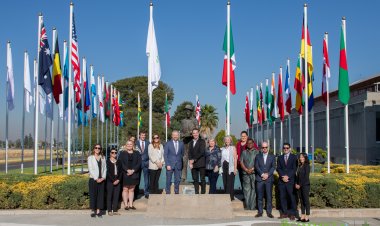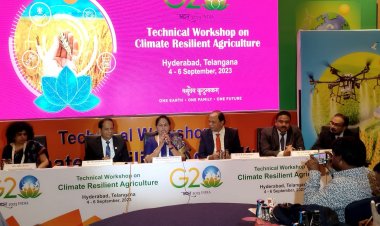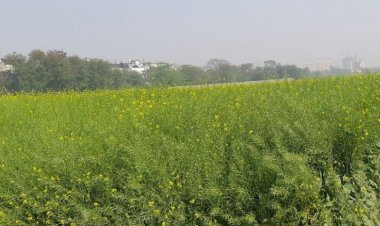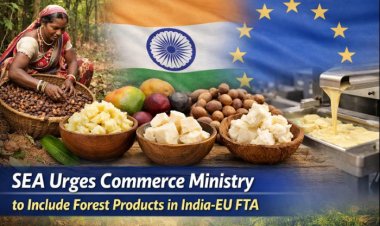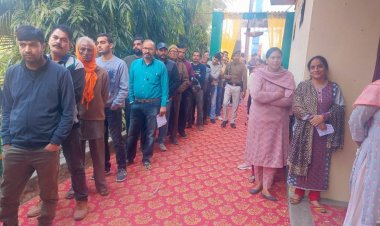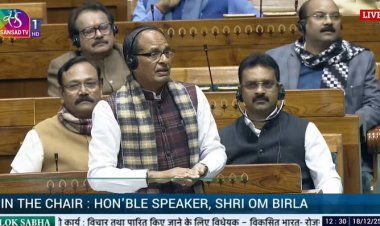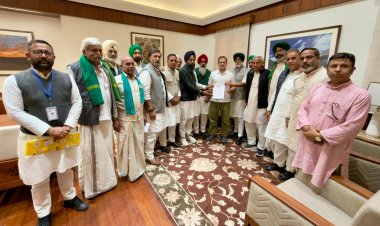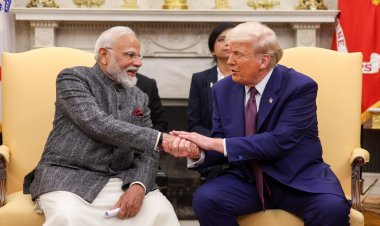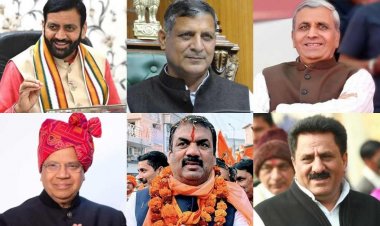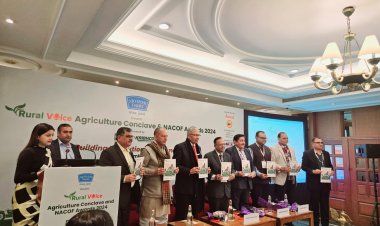Issues of PSH of foodgrains and subsidies challenge for India at MC12; opposition even from old allies
The AoA considers providing subsidized foodstuffs to the poor as market-distorting and, therefore, countries implementing food security programmes by using publicly held stocks of foodstuffs, are not allowed to breach the subsidy threshold of 10 per cent of their value of agricultural production, which the AoA has set for developing countries like India.
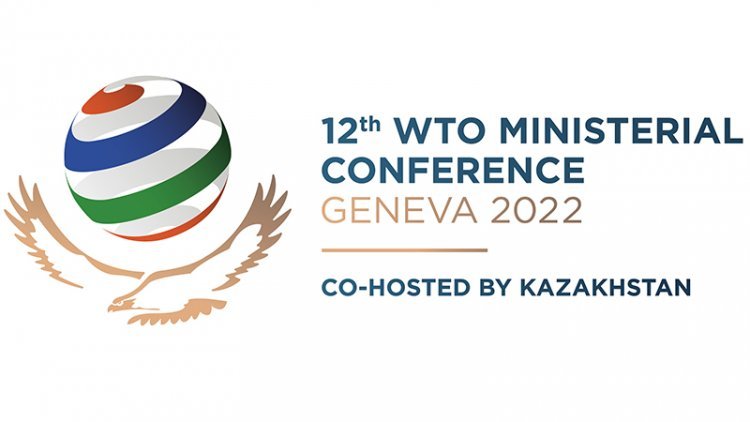
As has happened throughout the history of the multilateral trading system, agriculture remained mired in controversy in the run-up to the 12th WTO Ministerial Conference (MC12). The twice-postponed MC12 was expected to take several important decisions and to put the negotiations for reforming the Agreement on Agriculture (AoA) back on track, but over the past few weeks, the discussions among members have been excessively focused on two issues that are of critical importance for India.
The first of these issues pertains to the public stockholding (PSH) of foodgrains for food security purposes, which is the backbone of India’s public distribution system (PDS). Since the adoption of the National Food Security Act in 2013, through which the Government of India had committed to providing subsidized food grains to nearly two-thirds of the population, PSH has been under the scanner. More recently, the issue of export restrictions has also assumed importance for India, especially in the context of the wheat export ban that the government had imposed following a reduction in domestic production during the current cropping year (July 2021 to June 2022) and declining levels of buffer stocks.
PSH of foodgrains for food security purposes
In agriculture, the most crucial issue for India is PSH. This issue has arisen because the AoA imposes two sets of conditions on WTO members maintaining food stocks to provide subsidized food to address the problem of domestic food insecurity. First, every member must procure foodstuffs and sell them at administered prices. Secondly, if the foodstuffs are sold below the administered prices, implying that if a member sells at subsidized prices, the difference between the administered prices and the selling prices must be accounted for in the subsidies bill of the member concerned. Thus, the AoA considers providing subsidized foodstuffs to the poor as market-distorting and, therefore, countries implementing food security programmes by using publicly held stocks of foodstuffs, are not allowed to breach the subsidy threshold of 10 per cent of their value of agricultural production, which the AoA has set for developing countries like India.
Subsidy, according to the AoA, is the difference between the administered prices (or, minimum support prices (MSP) in the case of India), the prices at which foodgrains are procured and their “external reference prices”, namely, the international prices prevailing during 1986-88. Comparing the current administered prices of foodgrains with their prices prevailing more than 35 years back to assess the extent of subsidization makes little economic sense, but advanced economies have refused to amend the AoA to bring its provisions closer to reality.
As indicated earlier, the provisions regarding PSH became important for India after the government began implementing the National Food Security Act (NFSA) in 2013. Having made the commitment to provide subsidized foodgrains to almost two-thirds of the country’s population, India was staring at a situation where the possibility of breaching the subsidies’ threshold of 10 per cent could become imminent. If the government had continued to implement the NFSA despite breaching the subsidy limit, any other WTO member could have initiated a dispute against India. And, if India had lost the dispute, the distribution of subsidized foodgrains would have to be discontinued immediately.
In 2013, India was able to negotiate a “peace clause”, or a temporary reprieve from facing a dispute even if it had breached the subsidies’ threshold of 10 per cent while implementing the NFSA. WTO members must find a “permanent solution” to this problem that India is faced with. However, the “peace clause” includes an important “anti-circumvention provision”, namely the publicly held stocks should not be used to “distort trade or adversely affect the food security of other Members”, which implies that India cannot export from these stocks. In addition, India is required to “provide on an annual basis” information “for each public stockholding programme that it maintains for food security purposes” relating to the status and utilization of the publicly held stocks, the number of beneficiaries, the “quantity released to the beneficiaries at the national level and, if possible, at the sub-national level” as well as exports from these stocks, if any. This implies that India’s PDS is being closely monitored by WTO members.
Not surprisingly, therefore, when agricultural exports, and especially cereal exports, increased significantly in recent years, India was subjected to further scrutiny. During the deliberations in the Committee on Agriculture, several countries, including Japan, the Russian Federation, and the United States (US), have sought clarifications from India as to whether its exports of foodgrains are in any way linked to the Open Market Sales Scheme of the Food Corporation of India.
In the run-up to MC12, prospects of finding a “permanent solution” to the issue of PSH never seemed feasible because of the sharply divided views of the members. Two contrasting proposals, by Brazil and a combined proposal by the African Group, the ACP (Africa, Caribbean and Pacific) Group, and G33 (which also includes India), signify the extent of division.
Brazil’s proposal argues that only three sets of countries should have the right to use PSH. These include least developed countries (LDCs), net food-importing developing countries and countries requiring external assistance for food at least once in the past two years. In other words, Brazil seeks to deny India the right to implement its PDS.
The African Group, the ACP Group and the G33 proposal seeks to correct the anomalous methodology for calculating subsidies and suggests that the “external reference price” should be calculated using one of the following ways: (a) by taking the three-year average price based on the preceding five-year period excluding the highest and the lowest entry for that product; or (b) by adjusting for excessive inflation. This proposal includes the anti-circumvention provision as well as the requirements for reporting the implementation of the PDS, both of which were included in the “peace clause”. With WTO members having such divergent positions, any decision on the “permanent solution” of PSH seems improbable.
Export restrictions
The issue of export restrictions on agricultural commodities gained currency in the wake of Covid-19 when several countries imposed these restrictions to ensure that their own citizens did not suffer from food insecurity. In January 2021, a group of 80 WTO members issued a statement stating their commitment not to impose any export prohibitions or restrictions on foodstuffs purchased for non-commercial humanitarian purposes by the World Food Programme (WFP). Indirectly, the pressure was on India to similarly declare that it would also desist from imposing restrictions while fulfilling its commitments to provide foodgrains to WFP.
India refused to make this declaration since it is saddled with a significantly large challenge of domestic food insecurity. According to the FAO, India is home to the largest number of food-insecure people in the world, and, therefore, avoiding export restrictions in the face of food shortages domestically would create a humanitarian problem that the government would find it difficult to manage. It is important to recognize that during episodes of food shortages, when the international prices are high, an open market would cause leakage of foodgrains from India as traders would not have any incentive to sell at relatively low prices in the domestic market. Thus, while WTO members supporting the removal of export restrictions have argued that keeping markets open help in enhancing global food security, they have ignored the fact that trade can exacerbate India’s domestic food insecurity.
Further, the proponents of imposing a ban on export restrictions have ignored three key provisions relating to export restrictions/food security. First, they ignored one important aspect of the AoA, and this is the recognition that food security is an important “non-trade concern”. The preamble of the AoA states that “commitments under the reform programme (reform of the AoA, as is being proposed) should be made in an equitable way among all Members, having regard to non-trade concerns, including food security …”.
Secondly, the Doha Declaration that provided the mandate for reforming the AoA special and differential treatment for developing countries should be “an integral part of all elements of the negotiations” and should be made “operationally effective” so as “to enable developing countries to effectively take account of their development needs, including food security …”.
And finally, Article XI of the General Agreement on Tariffs and Trade (GATT, the predecessor organization of the WTO) that restricts the imposition of export bans allows WTO members to impose “export prohibitions or restrictions temporarily applied to prevent or relieve critical shortages of foodstuffs or other products essential to the exporting [member]”. This implies that India was well within its rights to impose restrictions on wheat exports given that its domestic stocks of the cereal have been declining.
India’s consistent opposition to the imposition of a blanket ban on export restrictions seems to have paid dividends. In the “Draft Ministerial Decision on World Food Programme Food Purchases Exemption from Export Prohibitions or Restrictions”, the Chair of the Committee on Agriculture Special Session, Ambassador Gloria Abraham Peralta, has proposed that any Member would not be prevented from taking “measures to ensure its domestic food security in accordance with the relevant provisions of the WTO agreements”. This is an important policy space that the Government of India has been able to secure for assuring food security to the country’s underprivileged.
(Dr Biswajit Dhar is a Professor at the Centre for Economic Studies and Planning, School of Social Sciences, Jawaharlal Nehru University. The views expressed here are his own.)



 Join the RuralVoice whatsapp group
Join the RuralVoice whatsapp group

















